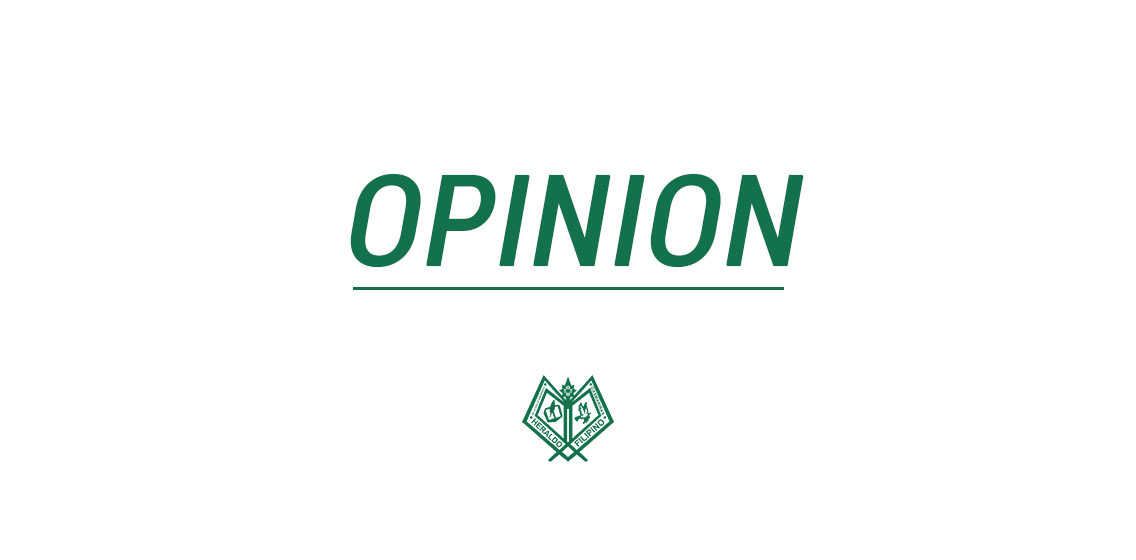Never underestimate the power of student voice
In the crisis we are facing now, a student’s role becomes increasingly important. Educational institutions are supposed to mold them into critical thinkers for the betterment of our country and yet, whenever they criticize the government, a barrage of illogical counterarguments follows from the privileged and ignorant. The current situation is calling upon the participation of the youth more than ever—and no intervention could ever stop that.
The internet has taken the brunt of all imaginable chaos within the past few weeks of community quarantine and if you are guilty of lurking in any social media platform religiously then you might have seen these kinds of rebuttal in certain posts: “Wala na ba kayong magawa kung ‘di manita ng pagkakamali ng gobyerno?”, “Dami mong sinasabi wala ka namang ambag”, or the infamous line of “Eh di ikaw na lang maging presidente, dami mong alam!”
Familiar, are they not? You might have been one of the lucky ones to be on the receiving end. The insults mentioned above are the usual retorts to citizens who openly call out the incompetence of our government officials, which are necessary comments. But then, if it is necessary, why do people react violently? The answer lies in the conditioning Filipinos undergo through—the cultivation of ignorance. We have been told to obey authorities, which is why criticizing the government is perceived as deviating from the norm. Hence, the fallacious attacks on progressive students that authorities use to discourage others from joining the dissent.
Our schools are facilities of learning but not all knowledge can be found in its confines. As it goes, there is more to learn outside of it. The world turns even as we conform to formal education, making us miss out on the real world where peasants die in their own lands, activists live on the run, and politicians spend the taxes we paid. The fantasy of living in our own bubbles is over. A student needs to recognize the unjust actions of our government like a teacher who marks a mistake in their student’s essay, a random citizen who leads firefighters where the fire is, and a human who grows to mature through the insights of others.
If we all agreed with each other, no one will be able to tell if we are doing anything wrong at all. Complete obedience will let the cycle of ignorance persist. We must remember that the government exists because of the governed, not the other way around in a democracy.
As students rightfully speak for the people, what they fight for stems from the roots of social justice. The definition of social justice was written by Jose P. Laurel in the Maximo Calalang versus A.D. Williams case in 1940. “Social justice means the promotion of the welfare of all the people, the adoption by the Government of measures calculated to insure economic stability of all the competent elements of society, through the maintenance of a proper economic and social equilibrium in the interrelations of the members of the community.” Here, he mentions that the fundamental and paramount objective of the state is the promotion of the health, comfort, and quiet of all persons, and of bringing about “the greatest good for the greatest number.”
Time and time again, we witness the synthesis of social justice through mass mobilizations facing crises throughout history. Recently, the 34th anniversary of the EDSA People Power Revolution was greeted by progressive groups protesting on the streets of Manila. Their collective conviction to oust a dictator and to never let another martial law happen comes from their desire to resist human rights violations like before.
The National Union of the Students of the Philippines (NUSP), League of Filipino Students (LFS), formerly the Alyansa ng Mag-aaral Laban sa Pagtaas ng Matrikula, and College Editors Guild of the Philippines (CEGP) were some formed student organizations that criticized the government during the Marcos regime. They braved the terrorized streets, although complete obedience and silence were the issued commands. Students were at the forefront of several protests and were the most active participants. This proves that the original bloodless revolution itself was a manifestation of how students become beacons of hope whenever needed the most.
Dissent exists because there is something noteworthy happening. If there is nothing wrong, why call out government officials with arguments? Why make petitions on the demands of the citizens? Why march and chant under the scorching weather?
The power of dissent generates action, its aim is not to cause the nation any harm but instead to augment its prosperity. A philosopher, politician, and lawyer named Cicero once said, salus populi est suprema lex or “the welfare of the people shall be the supreme law.”
We, as students, must overcome the fear stuck in our throats for us to be able to voice out what our welfare needs. We must uphold our voices even when fear rules the land, even when we are being silenced, and especially when crises strike.




